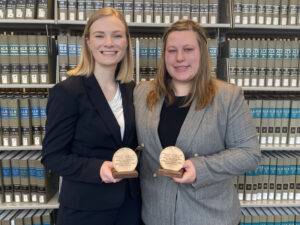National Proofreading Day
It’s the week before Spring Break at the Law School, which can mean only one thing: 1L briefs are due.
It’s timely, then, that today is National Proofreading Day. (It’s also International Women’s Day.) International Proofreading Day “highlights the importance of proofreading our own work.”
That’s easy enough to say, but less easy to do. Or at least, less easy to do well. Among the tips to effectively proofread are:
- Let it “bake.” I’m not sure where I first heard this phrase, but it refers to setting aside your writing before beginning to proofread it. I always suggest setting aside a brief or memo for a day or so, but I understand that amount of time is not always available. Any amount of time away, though, allows you to return to your draft with fresh eyes.
- Proof in hard copy. Hard copy edits are a must. You will see things about writing in hard copy that you will easily miss if you proofread only on screen.

List of proofreaders’ marks, from the 17th edition of the Chicago Manual of Style. - Learn proofreader marks. If you’re going to proof in hard copy, it’s worth it to learn the marks that editors use. Knowing these marks will speed up your proofreading and—if you’re on the receiving end of a proofread document—make sense when you go to make the changes.
- Monotask. That is, remove distractions—like your phone, email alerts, an open browser. It’s easier to focus when the distractions are set aside.
- Know your tendencies. Maybe you have trouble with correctly placing apostrophes or passive voice creeps into your sentences. Make a list of the writing habits you know you need to watch for in your own writing, then consult that list as you proofread.
- Shun autocorrect. Autocorrect does not catch every error; in fact, it always skips over correctly spelled words that are incorrect in context. Just ask my 1Ls, who must watch out for singers who are waving rights, rather than signers who are waiving rights.
- Read aloud. Or backward. Or out of order. Approaching your document differently allows you to see (or hear) what’s really there, rather than what you know you’re written.


